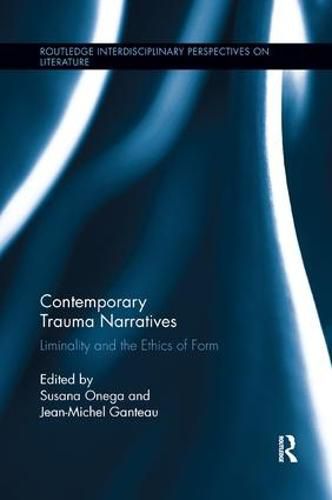Readings Newsletter
Become a Readings Member to make your shopping experience even easier.
Sign in or sign up for free!
You’re not far away from qualifying for FREE standard shipping within Australia
You’ve qualified for FREE standard shipping within Australia
The cart is loading…






This book provides a comprehensive compilation of essays on the relationship between formal experimentation and ethics in a number of generically hybrid or liminal narratives dealing with individual and collective traumas, running the spectrum from the testimonial novel and the fictional autobiography to the fake memoir, written by a variety of famous, more neglected contemporary British, Irish, US, Canadian, and German writers.
Building on the psychological insights and theorizing of the fathers of trauma studies (Janet, Freud, Ferenczi) and of contemporary trauma critics and theorists, the articles examine the narrative strategies, structural experimentations and hybridizations of forms, paying special attention to the way in which the texts fight the unrepresentability of trauma by performing rather than representing it. The ethicality or unethicality involved in this endeavor is assessed from the combined perspectives of the non-foundational, non-cognitive, discursive ethics of alterity inspired by Emmanuel Levinas, and the ethics of vulnerability. This approach makes Contemporary Trauma Narratives an excellent resource for scholars of contemporary literature, trauma studies and literary theory.
$9.00 standard shipping within Australia
FREE standard shipping within Australia for orders over $100.00
Express & International shipping calculated at checkout
This book provides a comprehensive compilation of essays on the relationship between formal experimentation and ethics in a number of generically hybrid or liminal narratives dealing with individual and collective traumas, running the spectrum from the testimonial novel and the fictional autobiography to the fake memoir, written by a variety of famous, more neglected contemporary British, Irish, US, Canadian, and German writers.
Building on the psychological insights and theorizing of the fathers of trauma studies (Janet, Freud, Ferenczi) and of contemporary trauma critics and theorists, the articles examine the narrative strategies, structural experimentations and hybridizations of forms, paying special attention to the way in which the texts fight the unrepresentability of trauma by performing rather than representing it. The ethicality or unethicality involved in this endeavor is assessed from the combined perspectives of the non-foundational, non-cognitive, discursive ethics of alterity inspired by Emmanuel Levinas, and the ethics of vulnerability. This approach makes Contemporary Trauma Narratives an excellent resource for scholars of contemporary literature, trauma studies and literary theory.